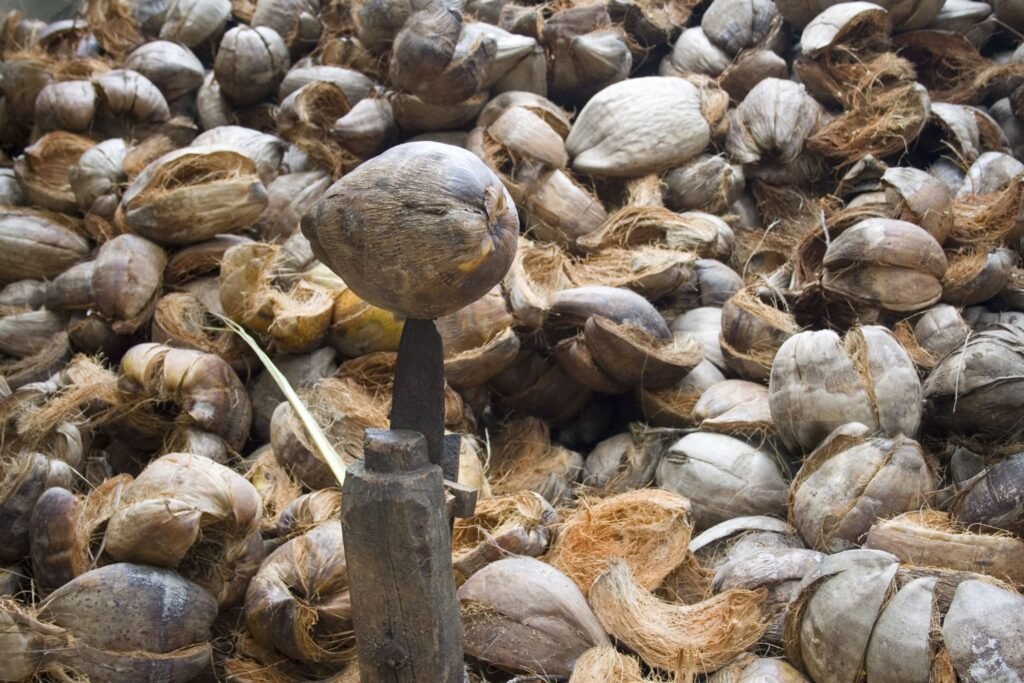How Indian Coconuts Meet the UK’s Food Import Regulations
How Indian Coconuts Meet the UK’s Food Import Regulations How Coconut Export to the UK Meets Stringent Food Import Regulations Coconut export to the UK has grown steadily over the last decade, driven by the UK’s rising demand for tropical produce and the versatility of coconuts in food and non-food industries. However, entering this lucrative market is not as simple as shipping containers overseas. Indian exporters must meet rigorous UK food import regulations, comply with documentation processes, and adapt packaging to ensure the products arrive fresh and safe. This article provides a detailed examination of how Indian exporters adapt their operations to comply with these regulations, ensuring a smooth and reliable trade. Understanding the UK Food Import Rules for Coconuts Before any shipment can leave India, exporters must understand the UK’s legal framework for agricultural imports. The UK operates under the Food Standards Agency (FSA) guidelines, which dictate safety, hygiene, and labeling requirements. For coconuts, these rules cover several critical aspects: Phytosanitary certification confirming the coconuts are free from pests and diseases. Moisture content control to prevent mold or spoilage during transit. Accurate labeling that includes country of origin, product description, and batch numbers. Residue testing to ensure no harmful chemicals or pesticides exceed permissible limits. This understanding is not optional; it is the foundation of gaining market access and avoiding costly rejections at UK ports. Quality Certification and Grading Standards for UK Entry Exporters cannot rely on general quality checks if they aim for a successful coconut export to the UK. UK coconut importers prefer suppliers who adhere to globally recognized grading systems. These grades typically focus on size, maturity, appearance, and weight consistency. For example, mature coconuts intended for food processing must have a specific shell thickness and copra content. Tender coconuts, often sold for their water, must meet freshness and color standards. Certificates like HACCP (Hazard Analysis and Critical Control Point) and ISO standards further validate the exporter’s credibility. Indian coconut suppliers who consistently meet these benchmarks are more likely to secure long-term contracts. Packaging Innovations That Support UK Coconut Imports When shipping coconuts over long distances, packaging is as important as quality control. Indian exporters follow packaging guidelines that protect the product while aligning with UK environmental and labeling requirements. Packaging standards usually involve: Sturdy cartons or crates designed to handle international transit. Clear labeling with product name, weight, and country of origin. Eco-friendly packaging materials are used where possible to meet UK sustainability goals. Proper ventilation to maintain coconut freshness during shipping. By combining protective and informative packaging, exporters ensure their products remain attractive and compliant upon arrival. Documentation and Customs Clearance for Smooth Coconut Exports When shipping to the UK, the documentation process is just as important as the quality of the coconuts themselves. Exporters must prepare a complete set of paperwork to satisfy UK customs and ensure smooth entry. This usually includes the bill of lading, phytosanitary certificate, commercial invoice, packing list, and certificate of origin. Missing or incorrect documents can delay shipments or result in goods being held at port, which risks product quality and customer satisfaction. Indian exporters who work with experienced freight forwarders and maintain accurate records face fewer disruptions. The UK’s border control system also requires timely pre-arrival notifications, allowing authorities to prepare inspections without causing delays. Sustainability and Traceability as Key Success Factors in UK Markets Sustainability has shifted from being just a marketing edge to a necessary factor for successful coconut exports to the UK. Buyers are increasingly looking for assurance that coconuts are sourced responsibly, emphasizing fair labor practices and minimal environmental impact. Implementing traceability systems that track coconuts from the farm to the port provides importers with confidence in ethical sourcing and food safety. To meet these rising expectations, coconut suppliers in India are investing in training at the farm level, digital tracking tools, and certification programs. These initiatives not only align with the preferences of the UK market but also open up opportunities in premium segments that are willing to pay more for verifiable quality. Key Takeaways: Indian coconut export to the UK depends on meeting British food safety and quality standards at every stage of the supply chain. Exporters must ensure coconuts are harvested, processed, and packaged according to UK-approved hygiene practices. Proper labelling, including origin, batch codes, and quality grade, is mandatory for entry into the UK market. Packaging must be moisture-proof and designed to preserve freshness during long-distance shipping. A valid phytosanitary certificate is essential for clearing UK customs without delays. Exporters should comply with UK import documentation requirements to avoid shipment rejections. Understanding UK import tariff classifications helps in calculating costs accurately. Building relationships with UK distributors requires maintaining consistent quality in every shipment. Staying updated with UK trade regulations ensures long-term compliance and competitiveness. Adapting to changes in consumer demand in the UK, such as organic or sustainable produce, can boost market presence. Latest Post Our Social Media Lorem ipsum dolor sit amet consectetur. Lorem ipsum dolor sit amet consectetur. Consequat vulputate convallis eget mollis viverra nunc mi egestas. Risus facilisi nullam donec.
